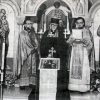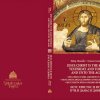Пиштало ће предавање одржати у Смитсониан институту, највећем музеју и истраживачком центру на свету, што је посебна част и прво предавање о Србији у тако престижној научној и културној институцији.
Ово предавање се одвија у организацији музеја и института Смитсониан, уз сарадњу Амбасаде Србије у Вашингтону.
Предавање је осмишљено као јединствен, личан и поетски осврт на поднебље и историју Србије, од античког времена, кад је Балкан називан катена мунди - жила куцавица света, преко манастира, крајпуташа, труба, боја и шала Србије.
Као српски писац који предаје америчку историју, Пиштало је у јединственом положају да може, крос-референцама, да објасни америчкој публици српско искуство.
Његов култни роман Тесла портрет међу маскама америчка издавачка кућа Graywolf Pres штампала је прошле године у два издања.
Роман је пропрацћен са двадесетак позитивних критика и представљен на књиззевним веццерима у ЦЦикагу, Бостону, Њујорку, Кливленду, Торонту и Вашингтону. Најважнији тренуци Пишталове турнеје представљала су читања на Хариман институту Колумбија универзитета, Универзитету у Чикагу и у Конгресној библиотеци.
Пишталов роман Тесла, портрет међу маскама је и у Србији остварио незабележен успех.
Након НИН-ове награде, и награде Народне библиотеке Србије за најчитанију књигу, већ седа година једна је од најпродаванијих књига на нашем тржишту, ушла је у читанке за основну школу и гимназију, објављена са успехом у свим бившим југословенским републикама, а америчко издање је 11. превод ове књиге на неки од страних језика.
У међувремену је преведен и на шпански и на турски.
Објављен је и као звучна књига и на српском и на енглеском. Српско звучно издање је прочитао глумац Петар Божовић.
Извор: РТС





